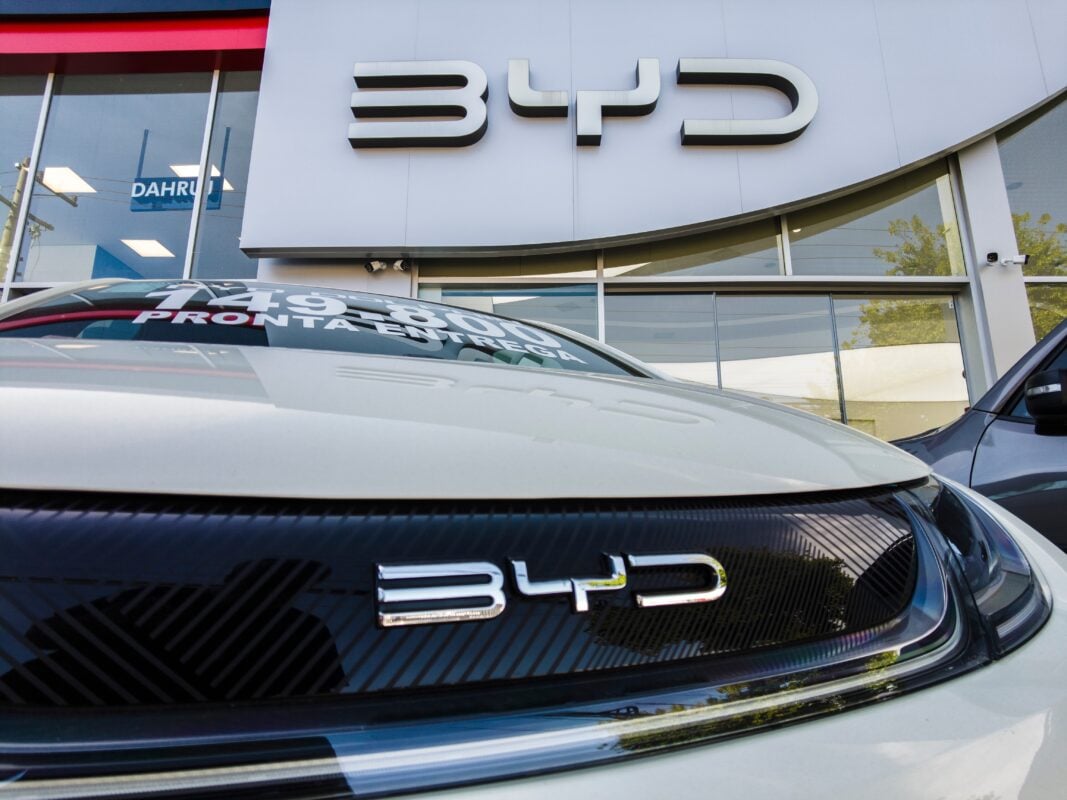TLDRs;
Contents
- China EV Marketplace launches door-to-door EV delivery service for Europe, covering logistics, inspections, tariffs, and registration compliance.
- In H1 2025, the company sold over 7,000 EVs globally, with Europe accounting for about 40% of deliveries.
- EU tariffs of up to 35% reduced BEV sales by 25%, while PHEV sales surged 370% due to lower duties.
- Commercial vehicles dominate sales at 65%, reflecting a strategic focus on fleet buyers over individual consumers.
Chinese EV Marketplace, a Shenzhen- and Prague-based ecommerce platform, has announced a new door-to-door delivery service for European customers purchasing electric vehicles (EVs) from China.
The service is designed to simplify international car imports by handling logistics management, pre-shipping inspection, duty clearance, and EU homologation,ensuring that every delivered vehicle is road legal and ready for registration upon arrival.
This move marks a significant step in bridging the gap between Chinese EV manufacturers and European buyers, at a time when tariff disputes and regulatory hurdles have made cross-border vehicle trade increasingly complex.
Growing global footprint despite tariffs
In the first half of 2025 alone, China EV Marketplace sold more than 7,000 vehicles worldwide, with Europe accounting for nearly 40% of sales. The platform specializes in both passenger cars and commercial vehicles, with commercial sales making up about 65% of total deliveries.
While Europe remains a crucial growth market, sales to the United States have been negligible, representing less than 1% of the company’s global volume. The company cited steep import tariffs, reportedly as high as 100%, as the primary barrier preventing meaningful expansion into the U.S.
Despite Europe’s imposition of tariffs up to 35% on certain fully electric vehicles, the region continues to attract strong EV import activity. The new delivery service is expected to help the company reinforce its foothold in the European market by removing friction from the purchasing process.
Tariffs reshape Europe’s EV demand
China EV Marketplace’s data highlights how tariff policies are reshaping the EV adoption landscape across Europe. While plug-in hybrid electric vehicles (PHEVs) face only the standard 10% import duty, fully battery-powered EVs (BEVs) are subjected to much higher tariffs.
As a result, sales of PHEVs to Europe surged 370% in early 2025, while BEV sales dropped by 25%. This shift suggests that trade policy, rather than consumer preference, is playing a decisive role in steering the market. Analysts warn that this dynamic could slow Europe’s transition to fully zero-emission transportation, as hybrids gain a competitive edge over cleaner alternatives.
Strategic focus on commercial vehicles
Another notable trend is the company’s emphasis on commercial vehicle exports, which account for nearly two-thirds of its sales. Fleet operators and logistics firms may be more willing to absorb tariff-related price increases compared to individual consumers, particularly when long-term operational savings and environmental regulations are factored into decision-making.
By offering fleet buyers turnkey delivery, the company positions itself as a one-stop solution for businesses seeking to electrify their operations across Europe.
Implications for global EV trade
The launch of door-to-door delivery underscores how Chinese EV exporters are adapting to regional tariff structures and trade disputes.
While the U.S. market remains effectively closed due to prohibitive import duties, Europe presents a mixed environment, challenging but still viable for expansion.
The platform’s dual headquarters in Shenzhen and Prague may also signal its intent to deepen integration within Europe, potentially enabling smoother supply chain coordination and better compliance with EU regulatory frameworks.


